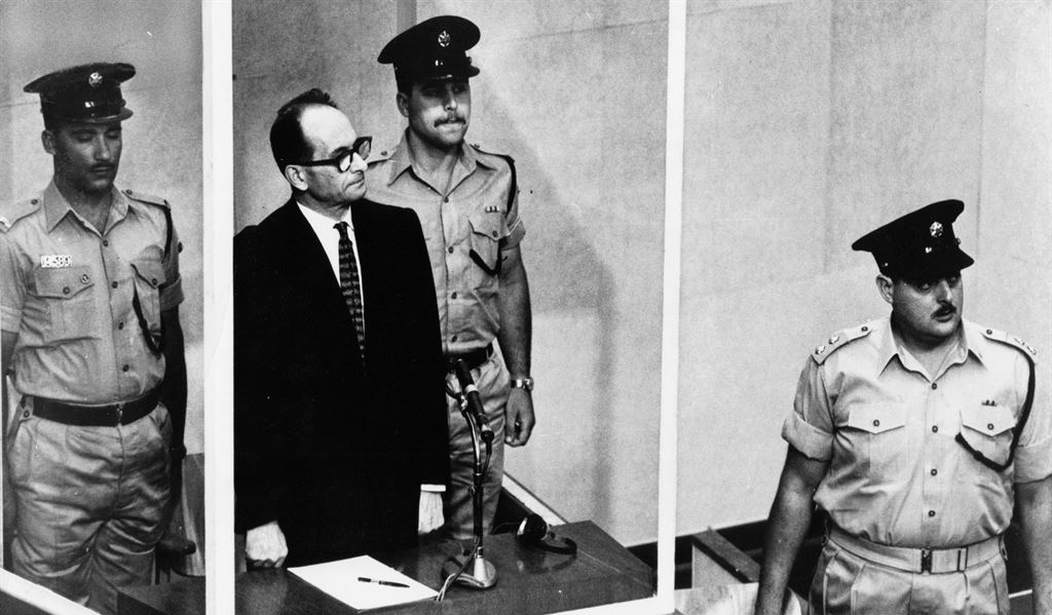Washington, D.C. - "I've played men I loved...this was a very different experience."
Sir Ben Kingsley has portrayed admirable characters like the brave Jewish accountant Itzhak Stern in Schindler's List, and Indian peace activist Mahatma Gandhi, the role for which he won an Oscar in 1983. Kingsley's latest role was a pretty different experience. Instead of someone to admire, Kingsley had to don a pair of glasses and portray Adolf Eichmann, a leading architect of the Holocaust, in the film Operation Finale. Unlike the Nazi leaders who were swiftly executed during the Nuremberg trials, Eichmann escaped justice and hid in Argentina for years. That is, until the Israeli agency Mossad found him and smuggled him to Israel for trial in the early 1960s.
At the post-screening discussion at the Holocaust Memorial Museum in Washington, D.C. last week, Kingsley explained to the audience how he was able to keep Eichmann separate from his psyche.
"I never became Eichmann for a second," Kingsley said. "I am a portrait artist."
"I never let him in," Kingsley added. "I’ve played men that I loved...this was a very different experience. I did not care for him, but I got him on canvas."
The film does not let the audience forget what monstrous deeds Eichmann did to the Jewish people, but it doesn't make him a monster. That was intentional, Kingsley explained. Kingsley's portrayal shows Eichmann as not just a murderer, but as a man with a family that he loves and tries to protect.
"We let Nazi Germany off the hook if we play Eichmann as a Marvel comic book monster villain," Kingsley explains.
The architects of the Holocaust were "intelligent and calculating." To suggest they were anything else would dishonor the memory of their victims.
Still, Israeli actor Lior Raz, who portrays Mossad director Isser Harel, admitted that Kingsley's portrayal of Eichmann will be hard for some of his fellow countrymen to watch.
Recommended
"We burned his effigy," Raz recalled. "'Eichmann' was the worst word."
So, the "softness" that is evident in the film "will be hard for Israelis to see," Raz admitted. "But, this is good storytelling."
The most chilling and powerful scenes in the film occur in a quiet room in the safe house where the Mossad team is hiding Eichmann before their transport to Israel. Oscar Isaac, who plays Mossad agent Peter Malkin, said those scenes are the reason he signed on to the movie.
"We tackled those scenes intuitively," Kingsley agreed. He credited Isaac’s "warmth as a character," allowing him to "play tennis with him."
"It was a great acting exercise," Kingsley said. "We shared a great trust."
The cast and crew also spoke at length about the importance of bringing Eichmann to justice, instead of killing him. Dr. Patricia Heberer Rice, Senior Historian at the U.S. Holocaust Memorial Museum, explained that the trial introduced the definition of "desk murderer."
"He didn’t kill anyone," she said. "He sat at his desk. He arranged the deaths."
The trail allowed the Holocaust survivors to be "front and center" and tell their stories for the first time. This, she said, is when the Holocaust "became embedded in culture."
Eichmann did eventually face justice in 1962, when he was hanged for his crimes.
Operation Finale is in theaters August 29.

























Join the conversation as a VIP Member